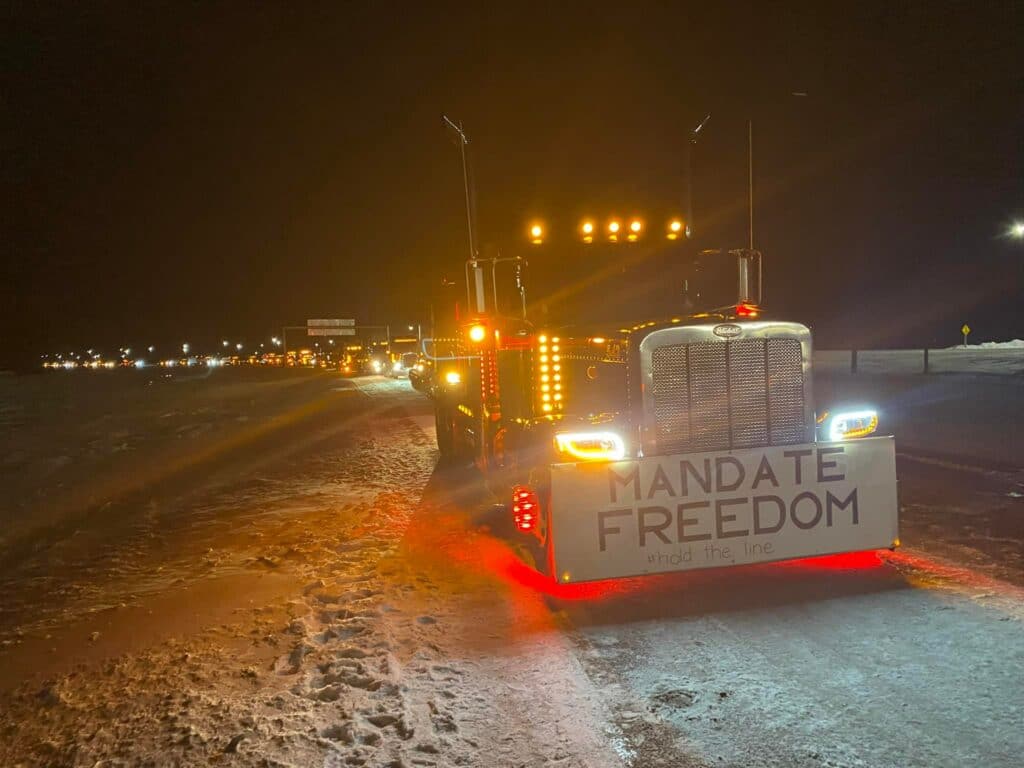
Thousands of Canadian truck drivers are organizing a huge protest convoy in hopes of ending the mandatory COVID vaccination mandate that was introduced across the country a few days ago. As of January 15, drivers must be fully immunized if they want to avoid nearly two weeks of quarantine and PCR tests on arrival, while unvaccinated American drivers can be sent back to the border.
The protest march is scheduled for January 23rd and will run across the country. Organizers include Colin Valentim, a fuel driver who will head the British Columbia-Canada convoy. He commented that his group would begin its journey from Vancouver at 8 a.m., merging with other convoys during their trip, and eventually all would arrive in Ottawa to protest.
“My convoy will pass east through Chiliwak, Hope, Merritt, Kamloops, Revelstoke, Golden and Calgary, where we will meet the one from Calgary. The end is in Ottawa.”
Valentim notes that the organized protest is for all professions affected by the mandatory vaccination against COVID-19. According to him, the scope of the measure includes health and municipal workers, fire, emergency police, ambulance employees and the hotel industry. According to him, everyone is welcome, with any kind of vehicle. He revealed that no roadblocks are planned. Valentim added:
“The idea behind this convoy now is to go all the way to Ottawa. It originally started as a single city and has become a national event and it’s great.”
There were also protests in other Canadian cities, where hundreds of truck drivers have already expressed their displeasure. One of the demonstrations was on Highway 75 near the international border. Its organizer is Rick Wall, who is adamant that all COVID measures imposed by the government over the past 2 years must be stopped. The truck driver noted that the new measures will not pay the bills.
Rick Wall is also president of a large transportation company based in Winkler, a city in southern Manitoba that has one of the lowest levels of vaccination. He says that most of the drivers in his company have not been vaccinated. As a result, the new rules „will have a detrimental effect on the company“, he predicted, adding that there was talk of feeding 20 drivers and many office workers.
The procession on Highway 75 began at 3:00 a.m. on January 15 and continued throughout the day. It involved not only truck drivers, but also those of cars, pickups and one or two agricultural tractors. Wall commented that, ironically, cross-border drivers tend to spend more time alone and have „contributed“ with the fewest cases of COVID-19 than in any other segment of the transport business.
At the same time, another owner of a transport company envisages higher costs for the goods as a result of the COVID measures. According to him, they will put a heavy burden on the supply chain and there will be an increase in the price of everything coming and going to the United States. It is possible that there will be an outflow of people willing to work in the industry, which will lead to serious challenges for the transport industry in Manitoba. According to the latest figures, around 160,000 drivers are currently involved in cross-border trade, of which 120,000 are Canadians.
The Canadian Truck Alliance estimates that between 12,000 and 22,000 Canadian drivers have been forced to leave due to new restrictions. According to them, trade between the United States and Canada through trucks amounted to $ 650 billion.
According to other estimates, Canada imports approximately $ 21 billion worth of agricultural products from the United States each year, and about 60 to 70 percent of imported food arrives by bicycle. That’s almost 20% of the food Canadians buy in restaurants and retailers. Many of them come during the winter months, when produce from the southern states offers supplies to Canadian consumers. Shutting down some of this business could exacerbate the shortage of drivers the industry is already experiencing, and could raise retail prices in the next few weeks. It is possible that shelves in the shops with sought-after goods will remain empty.
As of January 18, there were 13,832 new cases registered in Canada. Since the beginning of the COVID pandemic, 2.83 million people have been infected and 31,863 have died.














